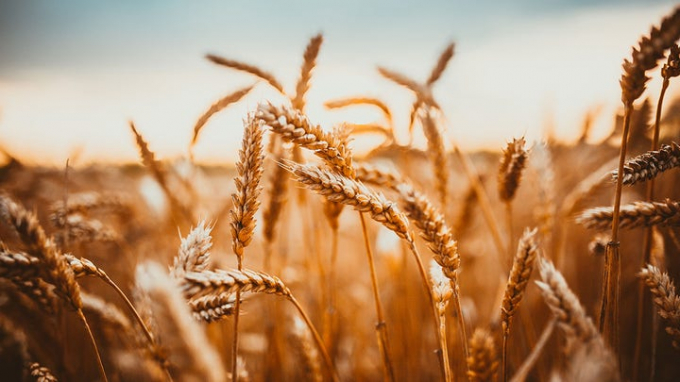November 27, 2025 | 22:01 GMT +7
November 27, 2025 | 22:01 GMT +7
Hotline: 0913.378.918
November 27, 2025 | 22:01 GMT +7
Hotline: 0913.378.918

About a quarter of the world's grain and about a fifth of the world's corn comes from the breadbasket of the world. Photo: iStock
Russia's invasion of Ukraine will more than likely have ripple effects across Europe and the rest of the world. One of the more immediate impacts of the conflict will be a reduction in the supply of wheat and corn.
About a quarter of the world's wheat trade and a fifth of the world's corn comes from the region, Bloomberg reports. Since Russia invaded Ukraine, both countries have had to close ports used for exporting goods. It's unknown when either side will be able to reopen these ports again.
On Friday, World Trade Organization Director-General Ngozi Okonjo-Iweala explained that the situation will have a significant impact on the price of bread and other wheat products for regular people.
Countries that buy wheat and corn from Ukraine and Russia will now have to look elsewhere, putting more strain on international suppliers.
One expert that spoke with Bloomberg explained that the situation will be putting more pressure on areas of the world where supplies are already lower than normal.
Fox Business previously reported that due to the wheat shortage, beer is likely to see a price increase over the coming months.
Barley, one of the key ingredients in making beer, is heavily produced in Ukraine. The region is often called the "breadbasket of Europe" due to the high amount of grain grown in the area.
It's unclear what impact this will have on the price of beer, however. Major brewers, like Molson Coors, have reportedly been able to absorb the higher costs while keeping the price the same for consumers.
Beer prices may increase
A significant percentage of barley used for beer comes from Ukraine.
Prices for many products have been rising over the past year, but one product in particular may see a sharp increase due to recent events. While Russia's invasion of Ukraine has caused many people to boycott Russian vodka, the conflict may also have an impact on beer drinkers as well.
Barley, one of the key ingredients in making beer, is heavily produced in Ukraine, WISN reports. The region is often called the "breadbasket of Europe" due to the high amount of grain grown in the area.
Jim McGreevy, president and CEO of The Beer Institute, spoke with news outlets about the situation.
"Ukraine accounts for about 20% of beer’s usage of barley," he said. "It’s one of the top five global producers of barley, so brewers, particularly at a global level, will be watching the supply and price of barley."
It's unclear what impact this will have on the price of beer, however. Major brewers, like Molson Coors, have reportedly been able to absorb the higher costs while keeping the price the same for consumers.
Some smaller brewers, however, have had to make adjustments.
Paul Johnson, bartender at St. Paul Fish Company in Wisconsin, spoke with WISN about how the rise in the cost of goods may impact prices at the bar.
"Like maybe 50 cents a glass on beer. Maybe a dollar on call drinks and stuff like that. But nothing too crazy," he explained.
(Fox Bussiness)

(VAN) A new study reveals how the simultaneous effects of ocean acidification, salinity and loss of oxygen are making the world more fragile.

(VAN) Hopes are growing that the creation of the first 3D turkey gut model could be a turning point in the battle against the virulent blackhead disease.

(VAN) Tyson, America’s biggest meat supplier, plans to shutter one of its largest beef processing plants as the industry continues to struggle with low cattle supplies and political pressure from Washington.

(VAN) New FAO study shows how digital solutions are empowering farmers and fishers to prevent losses and build resilient agrifood systems.

(VAN) Brazil's COP30 presidency pushed through a compromise climate deal on Saturday that would boost finance for poor nations coping with global warming but that omitted any mention of the fossil fuels driving it.

(VAN) Poultry farmers in the UK have been warned that they could face one of the worst winters yet for bird flu.

(VAN) Prices of main-crop paddy have risen sharply, with jasmine rice hitting 16,100 baht per tonne — the highest level in years.